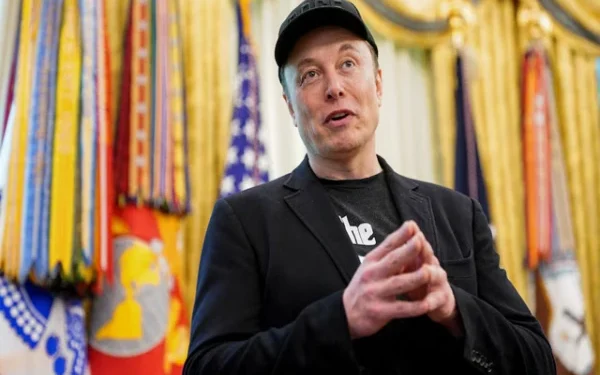Washington, D.C. – Billionaire entrepreneur and tech mogul Elon Musk has strongly criticized a new government spending and tax reform bill championed by former U.S. President Donald Trump, describing it as “disgusting and shameful.” Musk’s remarks have sent ripples through political circles, especially among Republicans, and have reignited debates over the nation’s mounting fiscal deficit.
Elon Musk Condemns the Spending Bill
In a statement made on his social media platform X (formerly Twitter), the CEO of Tesla and SpaceX expressed frustration over what he called a “wasteful” and “unacceptable” bill passed by Congress.
“I’m sorry, but I can’t take it anymore,” Musk posted. “This is a big, wasteful and unacceptable spending bill from Congress, which is a disgusting act.”
He further added:
“Those who voted for this bill should be ashamed of themselves. You know you did wrong.”
Musk’s public condemnation is particularly notable given his previous political alignment with the Republican Party, including open support for Donald Trump during the last U.S. presidential election. Musk also contributed millions of dollars to Republican campaign funds, strengthening his influence within conservative circles.
Key Provisions of the Controversial Bill
The bill, dubbed the One Big Beautiful Bill Act, has multiple components:
- Extension of Trump’s tax cuts introduced during his presidency.
- Increased defense spending, aiming to boost military capabilities.
- Enhanced funding for border security and immigration enforcement.
The legislation passed in the House of Representatives by a razor-thin margin and is now headed to the Senate, where Republicans hold a slim majority. Approval is expected next month, although several amendments may be introduced following growing dissent from both within and outside the party.
Economic Implications and Federal Deficit Concerns
One of the most controversial aspects of the bill is its projected impact on the federal deficit. According to a report by the nonpartisan Congressional Budget Office (CBO), the proposed legislation could add a staggering $3.8 trillion to the national debt over the next decade.
The current federal debt already stands at approximately $36.2 trillion, and this new legislation could exacerbate the fiscal imbalance. Critics argue that such excessive spending not only burdens future generations but also undermines economic stability.
Economists have voiced concerns about the sustainability of such policies, warning that continued deficit spending could lead to higher interest rates, reduced private investment, and long-term damage to U.S. economic credibility.
Republican Division Over the Bill
While the bill enjoys support from senior Republican leaders and former President Trump, internal divisions within the GOP are becoming increasingly apparent.
Several conservative senators, aligned with Musk’s fiscal concerns, are pushing back against the bill. They argue that extending Trump’s business tax breaks and increasing military and border spending without offsetting cuts elsewhere is fiscally irresponsible.
Senator Steve Danes, a member of the Senate Finance Committee, announced that committee members plan to meet with Donald Trump at the White House to renegotiate certain provisions, particularly the permanent extension of business tax breaks.
“We’re looking to revisit the cost implications and find ways to reduce unnecessary expenditures while still maintaining economic competitiveness,” Danes stated.
Elon Musk’s Political Influence and Shift in Stance
Elon Musk’s rebuke is being viewed as a significant shift, considering his pro-business stance and support for conservative policies. Known for his vision-driven leadership and success in revolutionizing the electric vehicle and space industries, Musk has long been a champion of innovation and limited government intervention.
His financial backing of Republican candidates during the last election cycle solidified his reputation as a major political influencer. However, his latest comments suggest a growing disillusionment with the party’s current fiscal trajectory.
“Fiscal responsibility must come before political loyalty,” Musk wrote in a follow-up post. “Throwing money at broken systems doesn’t fix them. It bankrupts the nation.”
Broader Reaction and Public Discourse
Musk’s comments have ignited widespread discussion across media platforms and within policy-making circles. Political analysts note that Musk’s influence over public opinion, particularly among younger, tech-savvy voters and libertarian conservatives, could sway opinions on the bill’s final outcome.
Supporters of the bill argue that defense and border security are national priorities that justify increased funding. They also claim that extending Trump-era tax cuts will help stimulate economic growth by empowering businesses and encouraging investment.
On the other hand, critics fear that such unchecked spending will deepen economic inequality, reduce funding for social programs, and create a fiscal time bomb for future administrations.
What Happens Next: Senate Debate and Amendments
The Senate is expected to debate the One Big Beautiful Bill Act next month. Given the mounting pressure from influential voices like Musk and conservative lawmakers, the legislation may undergo several revisions before a final vote.
Key points of contention likely to be addressed include:
- The permanent extension of business tax breaks
- The scale of defense spending
- Possible offsetting budget cuts to reduce deficit impact
Senators on the Finance and Budget Committees are reportedly reviewing alternative frameworks that could preserve some elements of the bill while minimizing fiscal damage.
Conclusion: A Defining Moment for Fiscal Policy
Elon Musk’s sharp criticism of Trump’s tax and spending bill marks a pivotal moment in the ongoing debate over fiscal responsibility versus political ideology in the U.S.
As one of the most influential voices in the business and technology sectors, Musk’s stance could play a critical role in shaping public opinion and legislative outcomes. With the bill still under review in the Senate, the next few weeks are set to be crucial in determining the future trajectory of U.S. economic policy.
Whether the Senate will heed Musk’s warning and amend the bill remains to be seen, but one thing is clear: the debate over America’s fiscal priorities is far from over.

























